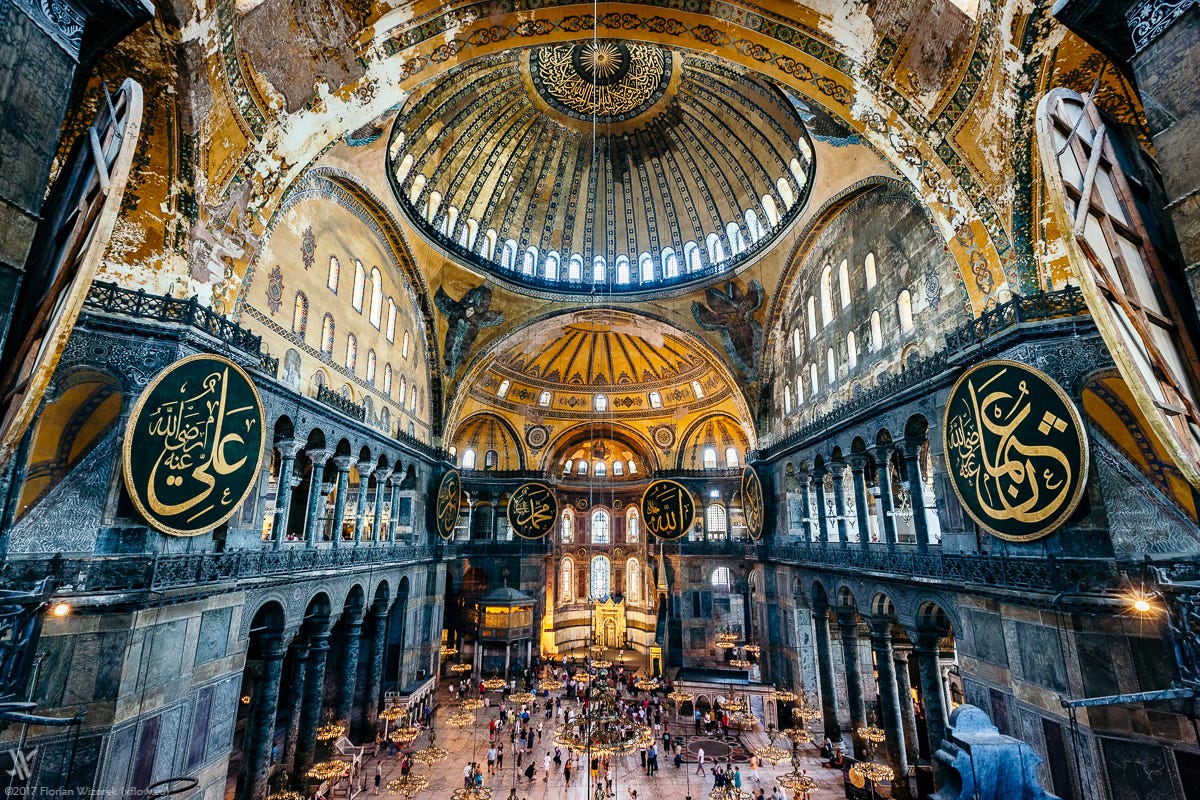The CBC reports that a Turkish court has ruled that Hagia Sophia no longer will have the character of a museum, but will be available for Islamic worship -- in other words, as a mosque.
Hagia Sophia, the most important church in the later Roman Empire, was built by the emperor Justinian in the 6th century. It was perhaps the biggest church or religious building for 1000 years. It is very impressive today.
Hagia Sophia, like the city it stands in, has been a symbol of the Eastern empire for a long time. From the 6th century until 1453, it was the capital of the Greek-speaking church. The Turkish conquest led to the conversion of the church into a mosque.
It stayed that way for about 900 years, when another political and religious revolution altered Hagia Sophia. Ataturk, the first president of the secular republic of Turkey, a man dismissive of religion, had Hagia Sophia designated as a museum, a monument that in theory was equally appropriate to all religions.
So what does the current move mean? President Erdogan has been reversing Ataturk's religious policies for about 20 years. He agrees with the pious forces who see Turkey as a Muslim state -- and Turkey is indeed a majority Muslim country. But there are many Turkish citizens who aren't Muslim, or particularly religious. How will these people react? And what will religious forces do to exploit their ownership of the capital Eastern empire?
Image: An interior shot of Hagia Sophia

No comments:
Post a Comment